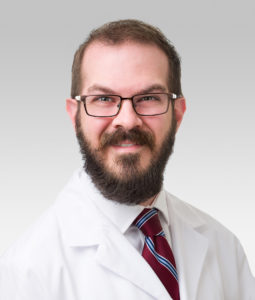Investigators will study neutrophils’ role in lung disease

A new $12 million National Institutes of Health grant led by Northwestern Medicine scientists in collaboration with other institutions will fund studies to identify mechanisms that determine how lung neutrophils drive tissue injury, inflammation and repair in patients with severe pneumonia, lung transplantation and asthma. Neutrophils are cells involved in lung inflammation and injury, but also repair.
“Neutrophils have been understudied and are not well understood,” said co-grant leader Benjamin Singer, ’07 MD, ’10 GME, an associate professor of Medicine in the Division of Pulmonary and Critical Care. “We want to understand the biology of this cell type within the context of patients’ lung diseases and their immune systems.”
The grant — “The Neu-Lung Consortium: Neutrophilic Mechanisms of Inflammation, Injury, and Repair in Lung and Airways Diseases” — is part of the National Institute of Allergy and Infectious Diseases’ U19 Cooperative Centers in Human Immunology. Northwestern is one of five sites chosen for this award. In addition to Singer, the grant is led by Stephanie Eisenbarth, MD, PhD, chief of allergy and immunology and director of the Center for Human Immunobiology at Feinberg, and Alexander Misharin, MD, PhD, associate professor of Medicine in the Division of Pulmonary and Critical Care.
Other investigators are from Ann & Robert H. Lurie Children’s Hospital of Chicago, National Jewish Health in Denver, the University of Colorado Children’s Hospital in Denver, and the University of Calgary in Canada.






